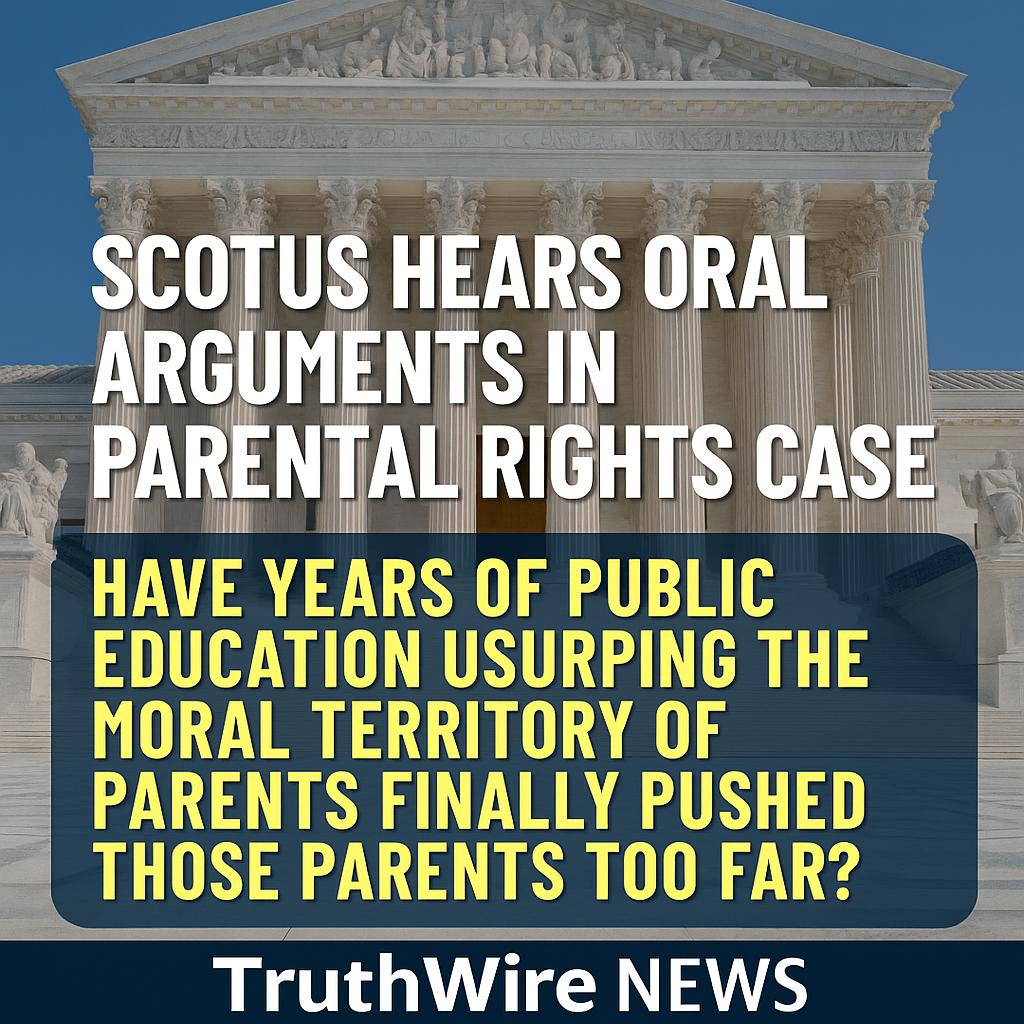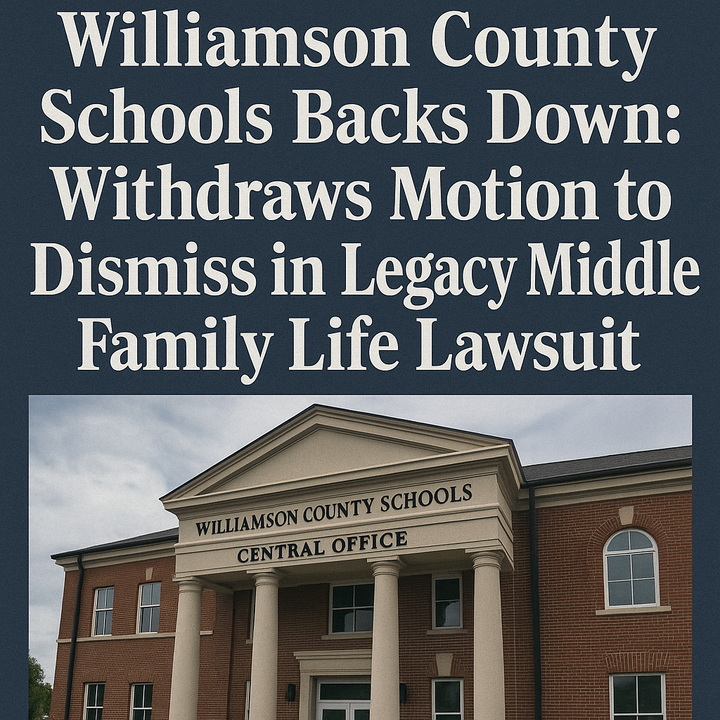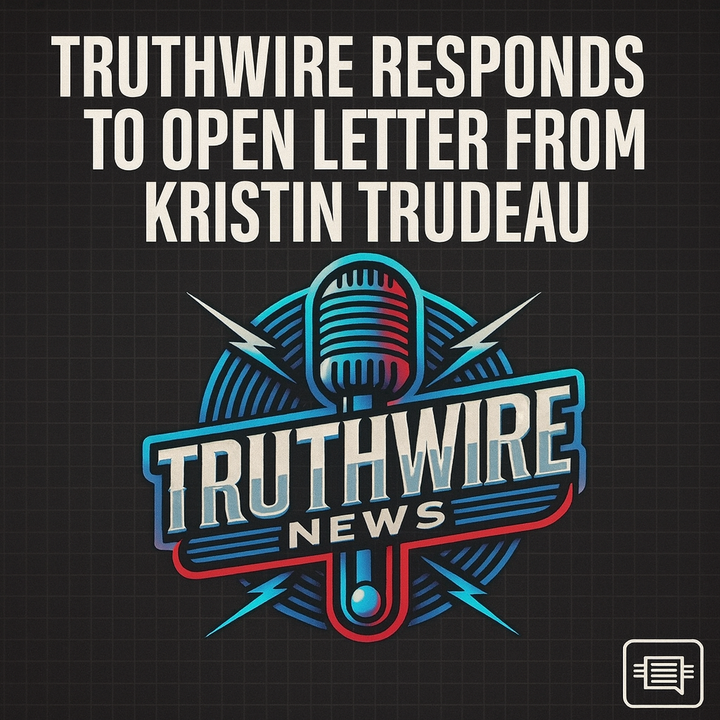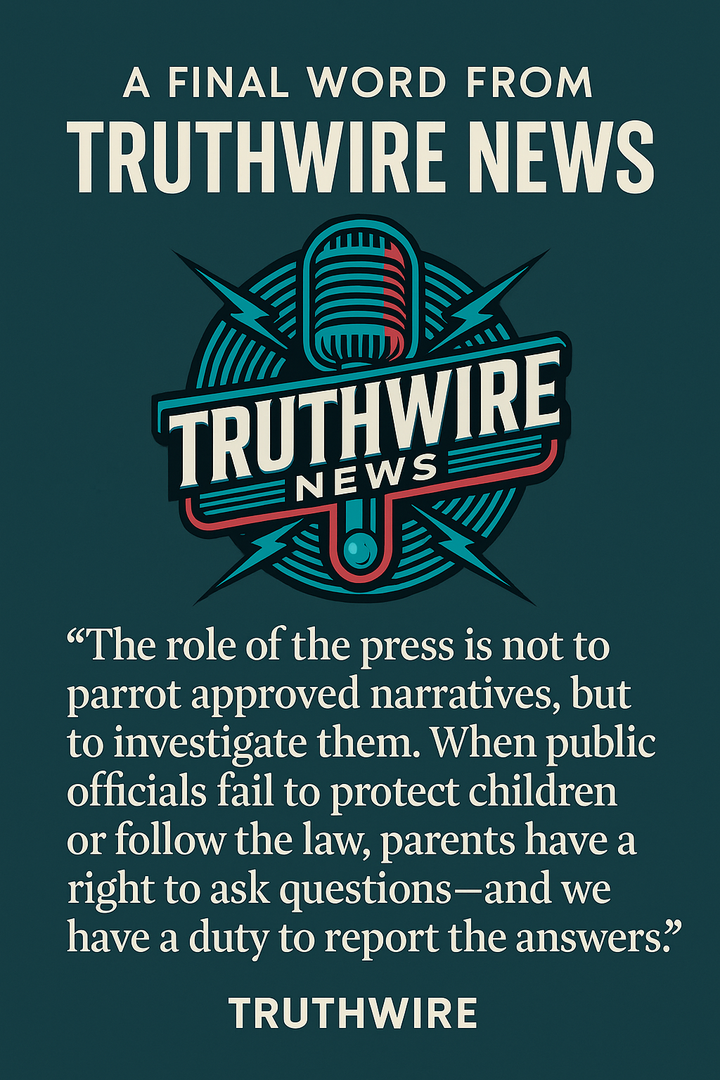SCOTUS hears pivotal case on parental rights after Maryland schools deny opt-outs for LGBTQ-themed books. At stake: who decides children’s moral education—parents or public schools? A ruling could reshape curriculum policies nationwide. #MahmoudvTaylor
By TruthWire News – April 22, 2025
In what could become a defining case for parental rights in public education, the U.S. Supreme Court heard oral arguments Tuesday in Mahmoud v. Taylor (No. 24-297). The case pits a group of religious parents against Montgomery County Public Schools (MCPS) in Maryland, which refuses to allow families to opt their children out of classroom instruction that includes LGBTQ themes and gender ideology.
At the heart of the case is a simple question: Who gets to shape a child’s moral worldview—parents or the state?
Montgomery County’s answer has been clear: even when children as young as four are exposed to lessons about transgender identity, same-sex marriage, and gender fluidity through storybooks like Uncle Bobby’s Wedding, Pride Puppy and IntersectionAllies, parents have no right to object. The district’s policy reversal—initially offering opt-outs, then rescinding them—has led to a showdown at the nation’s highest court.

The Real Conflict: Morality in the Classroom
Much of the debate during Tuesday’s arguments centered not just on the content of the books, but on the larger implications of public schools wading into moral instruction. Several justices expressed concern about where to draw the line on parental objections. But that very dilemma, critics argue, is one public schools created for themselves by drifting away from academic fundamentals and into ideological territory.
Justice Jackson, for instance, pressed the concern that recognizing religious opt-outs could make it difficult for schools to manage conflicting beliefs in diverse classrooms. But as many parents have pointed out—and as became increasingly clear during arguments—those complications wouldn’t exist if public education stuck to math, reading, science, and history. Instead, districts like Montgomery County have chosen to teach lessons that cross into questions of identity, values, and human relationships—areas that families believe should be taught at home, grounded in their own faith and moral traditions.
Justice Sotomayor raised alarms about potential “disruption” if parents could pick and choose what lessons their children attended. But again, the “disruption” only arises because the school is advancing ideological content under the guise of language arts.
As Justice Alito pointedly asked: “So your answer to religious parents who can’t afford private school and want to opt out is just ‘too bad’?” The school’s attorney, Alan Schoenfeld, replied that parents could pursue change through the political process. But for many families, particularly minority and religious communities, the notion that public schools can morally instruct children in direct conflict with their upbringing is precisely the constitutional issue at stake.
Exposure vs. Indoctrination
The school district tried to frame the dispute as being about “exposure to ideas,” not forced endorsement of them. But Justice Gorsuch questioned that logic, pointing to guidance where teachers are instructed to tell students that stating “a boy can’t be a girl” is “hurtful” and “negative.” “Is that exposure or is that coercion for a five-year-old?” he asked.
Chief Justice Roberts was also skeptical. “Is it realistic to expect a five-year-old to separate the teacher’s instruction from indoctrination?” he asked, pushing back on the district’s claim that students don’t need to affirm what they’re being taught.
The parents’ attorney, Eric Baxter of Becket Law, drove the issue home: “This is not about mere exposure. This is about children being told what to think about deeply contested moral and religious questions—questions that belong in the home.”

A Manufactured Dilemma
The liberal justices repeatedly raised the problem of “where to draw the line” on opt-outs—suggesting that allowing religious parents to object to LGBTQ content could open the floodgates to objections about other parts of the curriculum.
But what they failed to acknowledge is that this dilemma is of the school district’s own making.
The state didn’t run into these problems when it focused on academic excellence. Only when it ventured into identity politics and moral storytelling disguised as “civics” or “literature” did it begin imposing on the family’s role as moral guide. Rather than respecting boundaries, the school invited conflict by claiming jurisdiction over values—values that many parents believe are theirs alone to teach.
As Justice Barrett noted, several instructional materials went beyond affirming diversity and into the realm of value formation: “When someone says dresses are for girls or that gender is assigned at birth, teachers are instructed to ‘disrupt’ that thinking. That’s more than teaching respect. That’s teaching belief.”
National Implications: What Happens Beyond Maryland?
A ruling in favor of the parents could send shockwaves through public education:
- Parental Rights Reaffirmed: Public schools across the country may be required to allow opt-outs when curriculum material conflicts with religious beliefs.
- Curriculum Rollback: Districts may be forced to reassess the use of moral or ideological content in core academic subjects.
- Legal Standing Established: The case could provide a national framework for parents to challenge indoctrination under the Free Exercise Clause.
- Momentum for Legislation: Red states could use the ruling to strengthen curriculum transparency, parental rights, and the protection of religious families in public schools.
- Public School Exodus: If the Court rules for the school district, many families may abandon the system altogether, fueling the expansion of homeschooling, religious education, and school choice movements.
The line between education and indoctrination may soon be redrawn—not by a school board, but by the highest court in the land.

The case reflects a growing tension in American public education: a battle not over what children can know, but over who decides what they should believe. For many families—Muslim, Christian, Jewish, and otherwise—the issue is not opposition to diversity or kindness. It’s the right to determine when and how their children are introduced to moral frameworks, especially ones that directly contradict their faith.
Justice Kavanaugh summed up the concern in one of the most poignant exchanges of the day: “Maryland was founded as a haven for religious liberty… and Montgomery County has long reflected that spirit. Why is this the hill to die on—refusing to let religious parents opt their kids out of morally controversial lessons?”
It’s a question that may define not just this case, but the future of public education in a country increasingly divided over who controls the moral compass of the next generation.
A decision is expected by late June.
If you support what I do, please consider donating a gift in order to sustain free, independent, and TRULY CONSERVATIVE media that is focused on Middle Tennessee and BEYOND!





Comments ()